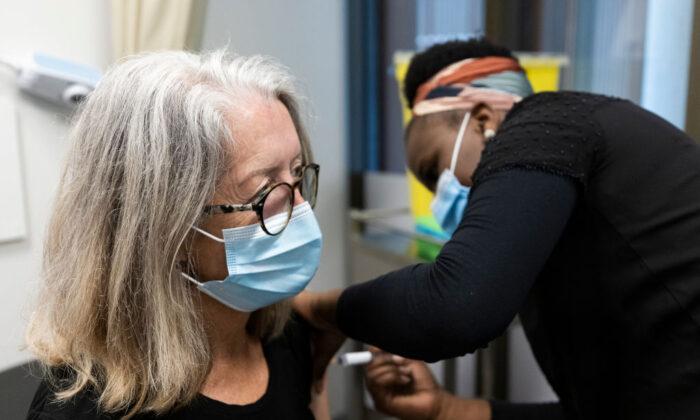A nurse’s challenge against vaccine mandates for the state’s health profession has been rejected, according to a decision by the Civil and Administrative Tribunal (CAT) released on Oct. 25.
Danielle Davis is employed at Ballina Hospital, in northern New South Wales (NSW)—Australia’s most populous state—where she was fighting a government-mandated public health order and letter from the hospital director compelling her to receive the first dose of the vaccine by Sept. 30 and the second dose by Nov. 30.
Davis’ application was to have both the order and letter stayed, calling for the Tribunal to review several issues, including a potential breach of the “rules of natural justice,” that there was an improper exercise of power, and that the authorities could not issue such mandates.
Meanwhile, the Tribunal concluded that it ultimately did not have jurisdiction to review public health orders and instructions from the state minister of health and the actions of the Northern NSW Local Health District (NNSWLHD).
The is the latest decision to conclude in favour of the vaccine mandates after a series of legal actions challenging vaccine mandates and public health restrictions on unvaccinated individuals were actioned this year.
Despite the earlier decision finding against vaccine mandate challengers, Larter’s representative, Shane Prince S.C., said they would present a more conservative case on different legal reasoning.
“We say the Kassam decision is quite different ... the way that the case was run was more ambitious than the way we propose to run our case,” he told AAP on Oct. 21.
Prince said the Kassam case challenged the “premise of the utility” of vaccinations, while Larter’s case would focus on the proportionality of public health orders.
“The health directive is only directed to a relatively small cohort of the community; that small cohort will be effectively coerced into vaccination,” he said. “Let’s say, for example, 90 percent of people who aren’t mandated to get vaccines, get vaccines, you’re really talking about directing a health order to maybe 10 percent of a cohort of about 140,000 people.”
He argued that based on these percentages, a public health order was disproportionate to the goal it was seeking to achieve.






Friends Read Free